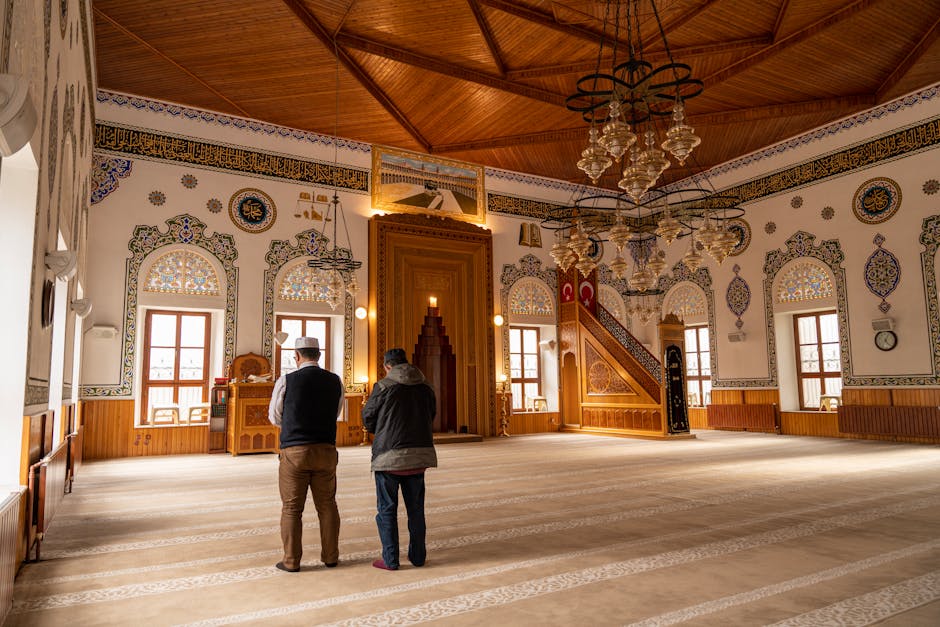The tapestry of human experience is woven with threads of diverse belief systems. Religion and spirituality, while often sources of profound personal meaning, can also be catalysts for conflict. However, a more nuanced perspective reveals that peaceful coexistence amongst faiths is not only possible but crucial for a flourishing global community. This exploration delves into strategies and principles for building bridges of understanding and fostering a culture of respect between adherents of different spiritual paths.
Understanding the Underlying Principles of Faith
A vital first step towards peaceful coexistence is recognizing the fundamental similarities underlying seemingly disparate faiths. While theological doctrines might differ drastically, the fundamental human need for connection, meaning, and ethical conduct often unites these systems of belief. Most religions, at their core, advocate for compassion, justice, and ethical living. They encourage acts of kindness, empathy, and service to others. Examining these shared values can illuminate the common ground that unites, rather than divides, adherents of different traditions. Frequently, it is a matter of differing interpretations of these principles, not a fundamental disagreement about their worth.
Active Engagement and Dialogue as Pillars of Coexistence
Constructive dialogue is critical for bridging the divides that often emerge between different faiths. Facilitated discussions, whether formal or informal, provide a platform for adherents to share their perspectives and understand one another’s beliefs. Such interactions should aim to foster mutual respect, avoid polemics, and focus on shared values. This process requires active listening, a willingness to suspend judgment, and an open mind to alternative viewpoints. Religious leaders, educators, and community members play crucial roles in facilitating these dialogues, creating opportunities for meaningful exchanges and fostering a culture of understanding.
Promoting Mutual Respect Through Educational Initiatives
Education plays a significant role in shaping perceptions and attitudes toward other faiths. Curricula in schools and religious institutions can be revised to include comprehensive and respectful portrayals of different religious traditions. A nuanced approach is vital, ensuring that these portrayals avoid simplistic generalizations or stereotypes while highlighting the richness and complexity of each tradition. This approach emphasizes the historical context and cultural expressions of faith, promoting a greater appreciation for diversity in religious practices and perspectives. Public lectures, workshops, and interfaith events can also serve as powerful tools for cultivating understanding and fostering respect.
Recognizing the Role of Shared Social Spaces
Spaces where people from different faiths interact regularly are crucial for building bridges of understanding. Volunteer efforts, community projects, and shared recreational activities provide opportunities for people to engage with one another outside of their immediate religious circles. These shared experiences help to dismantle stereotypes, highlight common goals, and foster empathy. These platforms encourage appreciation for the varied perspectives and practices that shape the religious landscapes within communities. It is through these lived experiences that true understanding often blossoms.
Overcoming Barriers to Interfaith Harmony
Despite the potential for harmony, significant barriers can impede interfaith coexistence. Prejudice, misunderstanding, and historical grievances often contribute to conflict. Addressing these challenges necessitates a focused effort to counter misinformation, combat prejudice, and reconcile past injustices. Acknowledging the pain and suffering inflicted in the name of religion is essential for moving towards healing and reconciliation. Open acknowledgement of historical conflicts without placing blame can foster a path forward.
Addressing Misconceptions and Stereotypes
Misconceptions and stereotypes about different faiths are often deeply entrenched in societal narratives. Combatting these deeply held and sometimes harmful beliefs requires proactive efforts in media representation, education, and community engagement. Promoting balanced and respectful portrayals of different religious traditions in popular culture can contribute to a more nuanced understanding of their practices and perspectives. Encouraging critical thinking about these narratives can help challenge the damaging stereotypes that fuel conflict.
The Role of Religious Leaders
Religious leaders hold a unique position in fostering interfaith dialogue and promoting peaceful coexistence. They can be instrumental in setting the tone for their communities, by emphasizing shared values and promoting respect for other faiths. Encouraging their congregations to engage in interfaith dialogue and participate in joint community initiatives can significantly impact attitudes and actions. Religious leaders should encourage and guide their communities in reaching out to other faith traditions, fostering empathy and mutual understanding.
The Power of Interfaith Collaboration
Collaboration across faiths can yield powerful results in addressing societal challenges and promoting shared values. Interfaith organizations and initiatives play a critical role in fostering cooperation, providing opportunities for mutual learning, and developing joint responses to issues such as poverty, environmental concerns, or social justice. Joint action on these issues can create tangible evidence of the positive impact of interfaith dialogue and cooperation.
Conclusion
Promoting peaceful coexistence between different faiths is not a passive aspiration; it requires active engagement, open dialogue, and a commitment to mutual respect. By understanding the shared principles that underpin various faiths, actively participating in interfaith dialogues, promoting education, recognizing the importance of shared spaces, overcoming historical grievances, challenging misconceptions, empowering religious leaders, and actively collaborating across faith lines, we can move towards a more harmonious and peaceful global community. Ultimately, this journey requires each individual to embrace the richness of diversity and actively contribute to a culture of empathy and understanding. This undertaking requires a shared responsibility and active effort from all members of society, irrespective of their religious background.






